The Disability Experience in the Borderlands and The Power of Telling Your Own Story
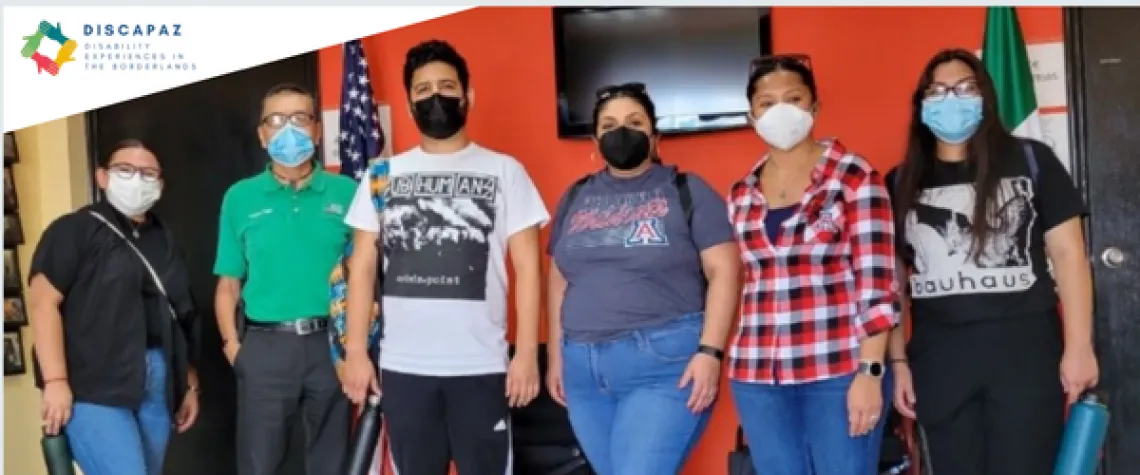
Stories are powerful. When we know someone’s story, we get a remarkably detailed portrait of them and their world.
Stories are powerful. When we know someone’s story, we get a remarkably detailed portrait of them and their world.
A new project by the University of Arizona Sonoran Center for Excellence in Disabilities hopes to harness the power of stories to get a clearer picture of what it means to live with a disability in the US-Mexico borderlands. DISCAPAZ:Disability Experiences in the Borderlands Project (DISCAPAZ) hopes these stories can inform advocates and practitioners of the needs, wants and strengths of these communities. DISCAPAZ is a part of the University of Arizona Libraries’ larger Digital Borderlands Initiative, and is a collaboration between numerous organizations on both sides of the US-Mexico border. The Sonoran Center and its affiliated ArtWorks program are working closely with Arizona Sonora Border Projects for Inclusion (ARSOBO) in Nogales, Sonora, and the Mariposa Community Health Center and Southern Arizona Autism Association in Nogales, AZ to engage communities in outreach and research activities. Moving forward, the project hopes to be the first step toward a more collaborative relationship between disability communities, activists and organizers and medical practitioners in the borderlands.
The funding for this project comes from the University of Arizona Libraries Digital Borderlands Initiative, a three-year grant project funded by the Andrew W. Mellon Foundation. The Libraries’ goal is to produce and disseminate new, open-access humanities scholarship on the U.S.-Mexico borderlands by integrating library services into a collaborative research process that emphasizes data-intensive, digital storytelling.
Digital storytelling is a broad term that encompasses many forms, including virtual reality environments, podcasts and video. The common thread among them is they are all digitally-created pieces intended to be disseminated and consumed through digital mediums. Data storytelling, as the name suggests, is storytelling that incorporates data analysis. This data can be numerical, categorical or another type of evidence; and can be included in the piece via graphics, visualizations or dynamic interactions. When done well, data storytelling can make complex social problems more easily understood. By incorporating both digital and data storytelling, the aim is to illustrate the experiences of the disability community in the borderlands both objectively (statistics, trends, etc.) and subjectively (stories and lived experiences of individuals).
Jacy Farkas, MA, ABD, is the assistant director at the Sonoran Center. She is also the Principal Investigator and Project Lead of DISCAPAZ.
“This will allow us to continue to cultivate and maintain those relationships, and work in partnership to address community-identified needs,” explained Farkas. “It’ll also help raise awareness for some of the issues individuals and families are facing in the area, and how that can feed into other advocacy work, what that might mean for policies and practices when it comes to services, whether they’re disability services or health services.”
With the stories they will collect, the project’s organizers strive to create a holistic picture of living with a disability in the borderlands. While identifying things that could be improved is important, it is also important to show people with disabilities succeeding and thriving.
“We’re looking at: What are some of the challenges or issues — what are the needs — but even more so what are the strengths and resilience in those communities,” said Farkas.
The way in which these stories are collected must also be clearly understood by all involved. To that end, the project has enlisted the help of ArtWorks, a program within the Sonoran Center dedicated to using creative solutions to bridge the gap between the disability community and the wider population. The organization’s director, Yumi Shirai, PhD, plans to use a module they have established with a multimedia approach.
To bridge this gap, ArtWorks will be implementing a series of workshops where participants can express themselves creatively. Participants will create scrapbooks to create a detailed picture of their life and community. The scrapbook approach was developed over the last year through a collaboration with AmeriCorps and Tucson Parks and Recreation.
“The DISCAPAZ is to capture their life stories; their communities, their cultures, what their day-to-day life is like,” Shirai said. “But when you try to talk to folks with intellectual disabilities, they may have limited vocabularies and ways of communicating.”
“[The workshops are] art based and use crafting and expressive mediums to talk about who you are in terms of your community and how you belong. These will be a series of workshops on both sides of the border with our partners,” Shirai said.
In addition to the workshops, some participants will also take part in interviews about their story, their life, and their community. Along with their interviews, they will create a photo-voice diary of their experiences and what is important to them. These are ultimately what will be adapted into the digital stories on the program’s website.
Students from the Sonoran Center’s Diversity Fellowship program will also be assisting the project. They will be assisting in conducting the scrapbook workshops and interviews as well as data collection and analysis. This gives them an opportunity to get firsthand experience with interdisciplinary research and authentic community engagement. The partnerships they create will prepare them for real-world practice in their own disciplines.
“We’re using a humanities lens with a health perspective. It’s really interdisciplinary,” said Farkas. “It's a great opportunity to get students who may not have had much to do with the disability community or disability related disciplines to gain more exposure and understanding of the needs of this intersectional community and how we can better support those individuals and families in those regions.”
Community partners such as ARSOBO, Mariposa Community Health Center and Southern Arizona Autism Association play key roles in the project. They will host workshops and connect the people they already serve along the border with the project, so they can share their stories.
One aspect of the project that Farkas and Shirai both emphasize is the way it aims to be a collaborative process between the borderlands communities and the organizations involved. Part of the reasoning behind having people with disabilities tell their own stories is that it helps reduce the power imbalances between the person with disabilities, their caregivers, disability advocates, and medical practitioners. Well-intentioned efforts by people outside the disability community are sometimes misguided, offering services or resources that the recipients never needed or asked for. By empowering people with disabilities to control their narratives, they become more active participants in shaping their communities for the better, not simply passive receivers of help.
“We don’t want to be a rescuer going in and saving them, but really understand what their lives look like and how we can work together,” emphasized Shirai.
The stories collected by this project won’t be simply discarded once the project is over.
“An online platform will continue beyond the life of this project, to highlight the stories of what it means to live with a disability in the borderlands,” Farkas says. “It’s exciting… how we’ll continue to be able to work in partnership and amplify the voices of folks into the future.”
The project aims to start working with participants, conducting interviews, and creating the scrapbooks in October. The stories will be curated over the following months, with the goal of launching the website to the public in late Spring 2023.
Meet the Fellow
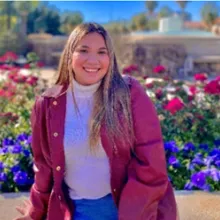
Paulette Nevarez
Pronouns: she/her
Undergraduate
Major: Family Studies & Human Development
Minor: Spanish & Pre-Health Thematic
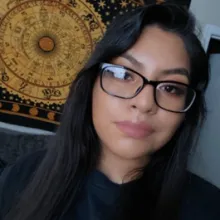
Sarah Robles
Pronouns: she/her
Undergraduate
Major: Veterinary Science
Minor: Mexican American Studies
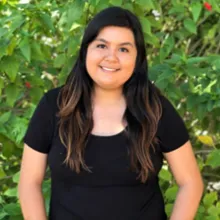
Bianca Aguilar, BS
Pronouns: she/her
Graduate
Major: Cellular and Molecular Medicine
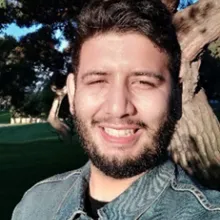
Pronouns: they/him
Graduate
Major: Library & Information Studies
